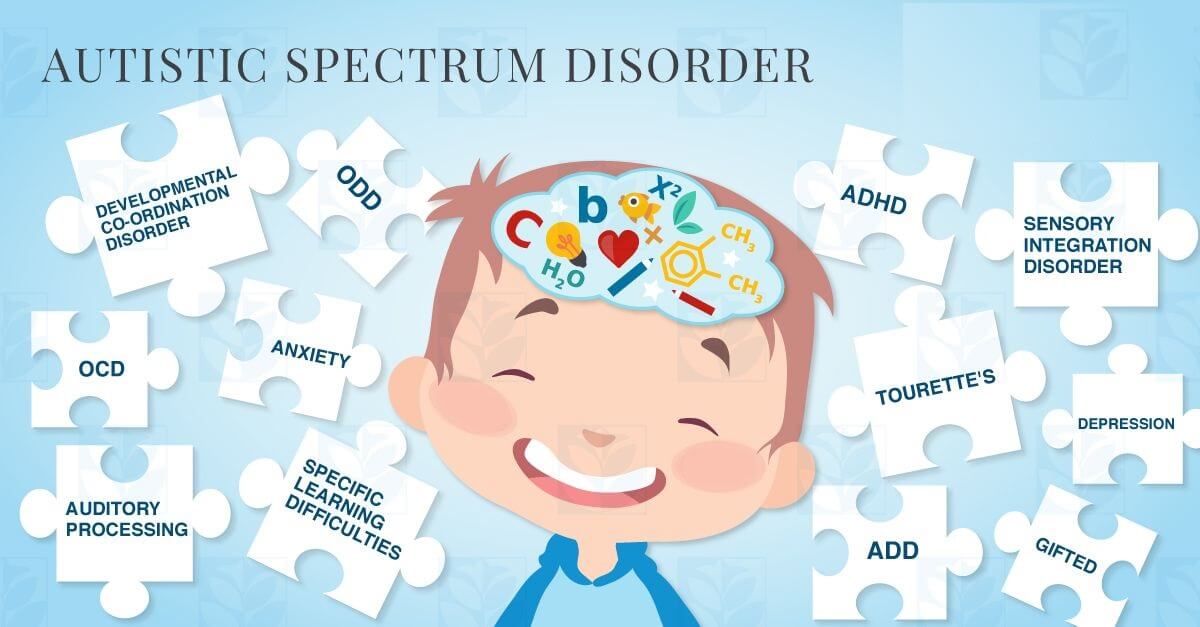Autism Nursing Assignment Help

Autism
Introduction: it is complex neurobehavioral conditions which include disturbances in social interaction and developmental language and communication. As it covers large spectrum of symptoms, skills, impairment therefore called autism spectrum disorder (ASD). Children with autism have trouble in communicating, understanding what people think and feel which makes very hard to express themselves with words, facial expressions.
Symptoms: Symptoms are characterised as followed:
- adoption of unusual speech patterns
avoiding eye contact with others
not responding to their name
late development of speech skills
having difficulty with maintaining conversation
frequently repeating phrases
apparent difficulty in understanding feelings and expressing their own
becoming preoccupied with objects, such as a toy or household object
lining up or arranging toys or objects in very orderly ways
Causes: The genetics and environmental factors may cause Autism:
Genetics: autism spectrum disorder can be associated with a genetic disorder, such as Rett syndrome or fragile X syndrome. Genetic changes (mutations) may increase the risk of autism spectrum disorder. Some genetic mutations seem to be inherited, while others occur spontaneously.
Environmental factor: The viral infections, medications or complications during pregnancy or air pollutants play very important role in autism spectrum disorder.

Complications: Social interactions, communication and behaviour lead to problem in successful learning, employment problem, inability to live independently, social isolation, and stress within family.
Treatment: there is no uniform treatment for autism. Therapies and strategies are available for managing the health issues that often accompany autism. These issues can include epilepsy, depression, obsessive-compulsive disorder and sleep disturbances.
Prevention: Early diagnosis and intervention is most helpful and can improve behaviour, skills and language development. However, intervention is helpful at any age.
Nursing Topics
- Registered Nurses Standards For Practice
- Reflection on Registered Nurse Standards for Practice
- Ambulatory care Nursing Homework Assignments Help
- Australian Healthcare System assignment help
- Clinical Judgment and Decision Making in Nursing
- Critical Thinking In Nursing Homework Assignments Help
- Families in Sickness and Health assignment answers
- Healthcare Management assignment help
- Spiritual Needs Assessment answers
- Therapeutic Nursing Homework Assignments Help
- Anxiety Disorders
- Arrhythmia
- Arthroplasty
- Autism
- Zika Virus
- Glaucoma
- Gallbladder and Biliary disease
- GERD
- GOUT
- Colorectal cancer
- Hepatitis B
- Hepatitis C
- Heart failure
- Hodgkin’s disease
- HPV and cervical cancer
- Hypertension
- Hypogonadism
- Immunization
- Infertility
- Inflammatory bowel disease
- Insulin Therapy
- Influenza
⯈ Child Nursing Help
- Benefits of pet therapy in children on the autism disorder spectrum
- The use of cough and cold medicines in very young children
- Improving asthma management in schools
- Does obesity in children cause risks for influenza complications?
- Management of pain in pediatric nursing
- Children's health insurance: a right or a privilege?
⯈ Adult Nursing Help
- Effects of abdominal massage in critically ill patients
- Do whole grains in an adult's diet prevent cardiovascular diseases?
- Mirror therapy for brain-injured or stroke patients with partial paralysis
- The role of self-care management in sickle cell adult patients
- The role of nurses in weight loss programs for adults
- Cardiovascular risk scores in relation to age and gender
⯈ Elderly Care Nursing Help
- Ways to identify an abused elderly patient
- Clinical trials in older patients
- Change in health care for the elderly in your country
- Measures to take when the elderly refuse to eat
- Alcohol use among elderly patients in nursing homes
⯈ Women’s Health Nursing Help
- Acne prevention and treatment in women
- Increased risk factors for osteoporosis in women
- Factors that alter breast milk content
- Ways to teach patients about menopause management options
⯈ Pain Management Nursing Help
- Emerging ethical issues in pain management
- Influence of patient’s race and gender on pain management decisions
- Effects of cold therapy (a non-pharmacological method) for pain management
- Effective end-of-life care interventions
⯈Primary Health Care Nursing
- How well are nurses prepared for primary health care in your country?
- Primary health care: comparing public health nursing models in different countries
- Patient and family engagement in primary care

